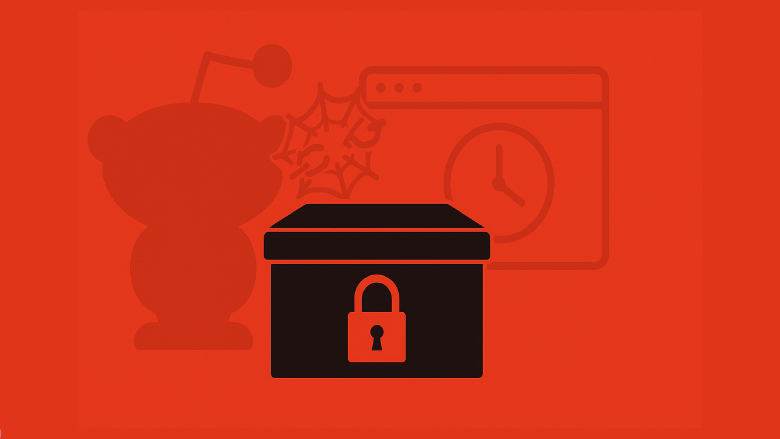
TL;DR
On August 11, 2025, Reddit said it will block the Internet Archive’s Wayback Machine from indexing nearly all of Reddit—posts, comments, and profiles are out. Only the front page remains crawlable. Officially, this is about stopping AI companies from scraping via the Archive and about protecting user privacy. Practically, it’s another piece of the open internet being bricked over.
What Changed (and Why It Hurts)
The Wayback Machine is the web’s collective memory. It’s how we verify edits, track deleted claims, follow community history, and study platform governance decisions years later. Cutting it off from Reddit doesn’t just inconvenience a library—it breaks the chain of public accountability around one of the largest conversation archives in human history.
This shift also accelerates a broader trend: the web’s center of gravity drifting from open-by-default to permissioned-by-default. Big platforms are pulling content behind API gates, paywalls, login walls, and now archive walls. Your ability to see yesterday is increasingly conditional.
The Stated Rationale vs. The Real Stakes
Reddit says AI firms have used the Wayback Machine to bypass crawler restrictions. Two things can be true at once:
- Abusive scraping is real, and platforms are right to defend users from privacy harms.
- Shutting out the public archive is a blunt instrument that primarily harms journalists, researchers, moderators, historians, and everyday users trying to understand how a conversation changed—or disappeared.
The open web has always balanced rights, risks, and memory. We’re losing that balance when the default response to new threats is to wall off the historical record for everyone.
Pattern, Not a One-Off
Reddit is not alone, but it is a bellwether. In the past 18 months we’ve watched platforms:
- Monetize data access through private licensing deals (including for AI training) while
- Restricting public access through API changes, crawler blocks, and now archive limitations.
The message is clear: public memory is a cost center; private feeds are a profit center.
Who Loses When Memory Goes Dark
- Journalists & fact-checkers lose source-of-record snapshots when a thread is edited or wiped.
- Researchers lose longitudinal datasets on community behavior, harm, and governance.
- Moderators lose a neutral record to resolve disputes or document brigading and abuse.
- Communities lose their own history—projects, guides, and cultural moments vanish to link rot.
- Users wanting anonymity and safety lose the ability to hold platforms (and each other) accountable for reversals and quiet policy edits.
The Wayback Machine is imperfect. It sometimes preserves what should be forgotten and misses what should be saved. But its absence creates a vacuum that will be filled by unaccountable private datasets and vendor dashboards we can’t audit.
“But Privacy!” Isn’t the Trump Card
Privacy matters. Deleted posts, doxxing, harassment—these are real harms. The fix is policy and tooling, not memory erasure:
- Honor takedowns for clearly harmful content.
- Provide granular, opt-out archiving controls at the user and community levels.
- Support redaction and tombstoning that leaves accountable metadata without exposing victims.
- Fund the Archive—and require auditable safeguards that stop bulk extraction by bad actors while preserving public interest access.
We don’t need to choose between user safety and public memory. We need institutions willing to do the work to deliver both.
The AI Subtext
Let’s be honest: this is also about controlling supply for AI buyers. If publicly accessible archives remain open, they compete with private data licenses. Locking down the past helps name the platform’s price for the future. That might make business sense. It’s terrible for the commons.
What We’ll Lose—Quietly, Over Time
The death of the open internet won’t look like a blackout. It will feel like:
- More “content unavailable” pages when you check a source.
- Fewer side-by-side snapshots to compare edits.
- Researchers spending months on compliance paperwork to get access to data that used to be a URL away.
- Communities becoming ahistorical—every thread a goldfish.
When we can’t cite the past, we argue feelings instead of facts. That’s a downgrade for everyone.
Better Options Exist
Platforms could:
- Allow the Wayback Machine to index metadata and text for public posts while excluding sensitive media by default.
- Offer per-subreddit archive settings and user-level moderation hooks that signal what should never be preserved.
- Implement rate-limited, purpose-bound researcher programs that complement (not replace) public archiving.
- Publish transparency reports for archive blocking and takedown requests.
These are policy choices, not inevitabilities.
What You Can Do (Right Now)
- **Support the Internet Archive:** [Donate here](https://archive.org/donate/) or advocate for its mission in your networks.
- **Mirror what matters:** If you run communities or projects, export and store your wikis, guides, and cultural records.
- **Push for archiving policies:** Ask platforms to provide opt-in public archiving and clear redaction options.
- **Vote with your feet:** Use and promote platforms that preserve public memory as a core feature.
- **Educate others:** Share resources about why the open internet and archival access matter.
---
## Final Take
Reddit’s block isn’t the end of the web. It’s the latest sign that the web we loved—linkable, inspectable, historically accountable—is being rebuilt into private gardens with opaque rules. The open internet dies the way institutions do: one small policy change at a time, each defensible in isolation, catastrophic in sum.
If we want a web with a memory, we’ll have to defend it—publicly, loudly, and together.


